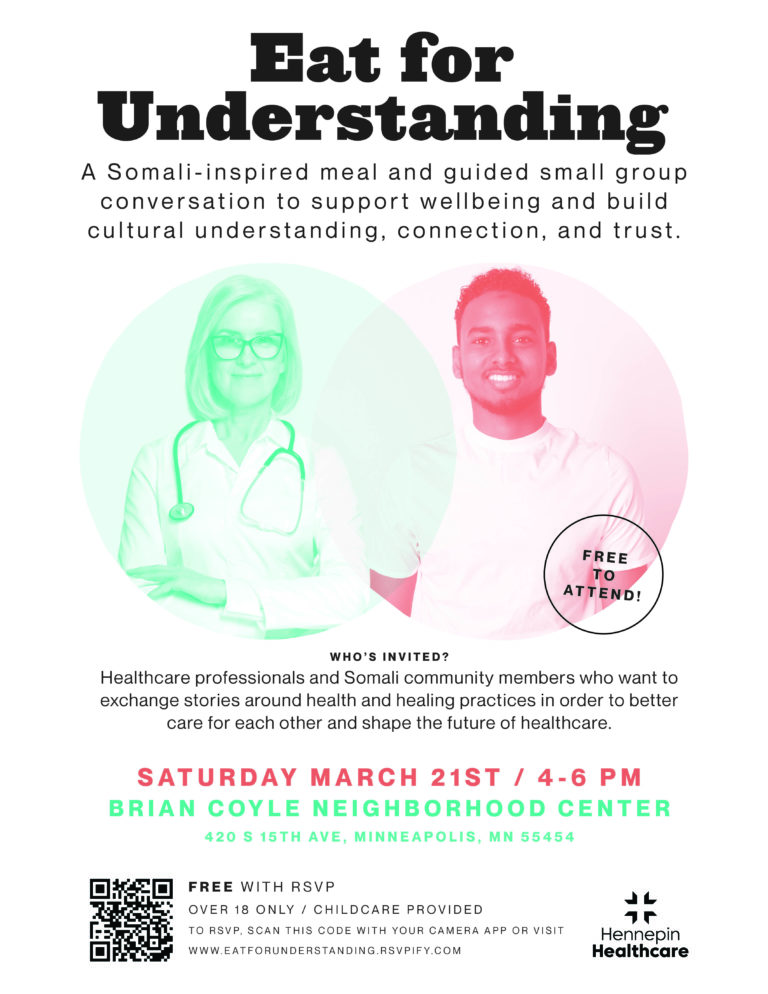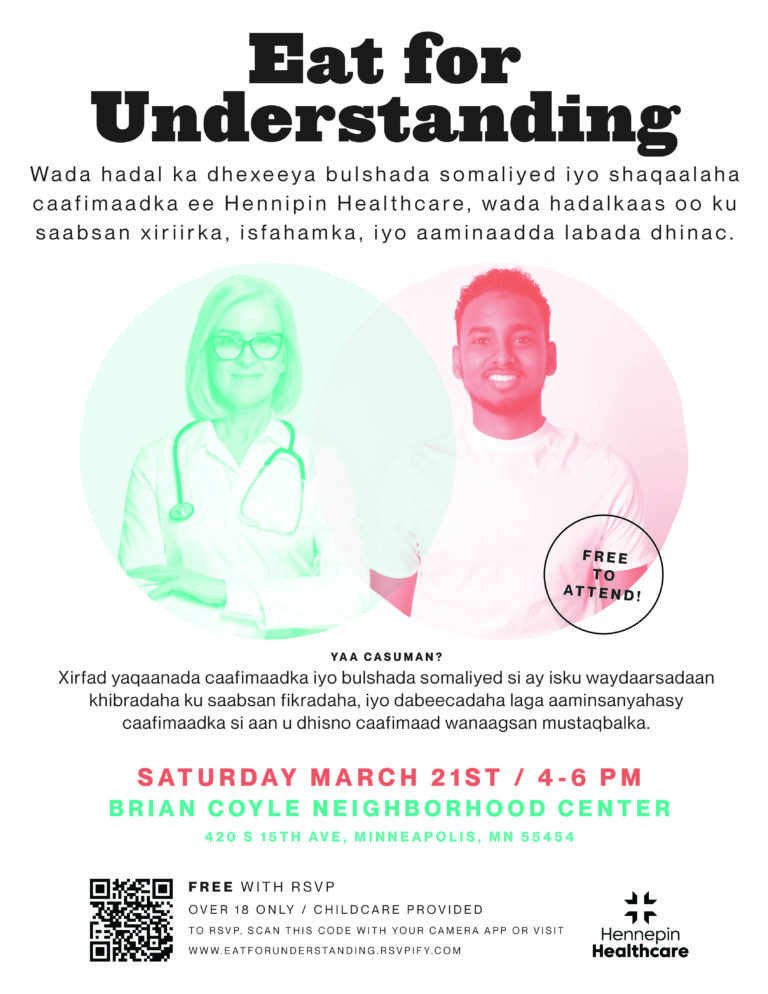Early in 2020, teams at Hennepin Healthcare in Minneapolis and the Los Angeles Department of Health Services’ Whole Person Care (WPC-LA) program were prepped to launch new efforts to reach some of their most high-risk populations. Both organizations were piloting innovative consumer engagement approaches to create meaningful face-to-face connections with community members — Somali immigrants in Minneapolis and formerly incarcerated individuals in Los Angeles. COVID-19 shelter-in-place orders, however, abruptly ended these in-person gatherings and, simultaneously, made these populations more vulnerable than ever. Both organizations needed to pivot quickly and rethink how to best reach communities in need.
Plans Underway Before COVID-19 Struck
Hennepin Healthcare and WPC-LA are both testing new approaches for engaging community members, particularly those with complex health and social needs, under the Center for Health Care Strategies’ (CHCS) Community Partnership Pilot, made possible through the Robert Wood Johnson Foundation.
Hennepin Healthcare, a safety net health care system, is exploring barriers to accessing behavioral health care services experienced by a large local Somali immigrant community. Community members are working directly with Hennepin staff to identify opportunities to jointly tackle barriers to accessing behavioral health services, including staff training and empathy building, and addressing stigma and fear. The culmination of this work was an Eat for Understanding event, a Somali-inspired dinner to bring Somali community members and health care providers to the same table with the goal of destigmatizing mental health, building trust and cultural understanding, and fostering connections.
In Los Angeles County, the WPC-LA team recently established a Reentry Health Advisory Collaborative — an 11-member team of formerly incarcerated individuals and those impacted by the criminal justice system — to better understand their interactions with the county’s health care delivery system. The goal of the Advisory Collaborative, which originally planned to meet monthly in-person, is to elevate this community’s voice through shared learning, policy, and program analysis, and to make recommendations to improve how the county engages with the justice-involved population and meets their health care needs.
When COVID-19 Gives You Lemons…Time to Think Creatively
When governors started to mandate shelter-in-place orders beginning in March, both Hennepin and WPC-LA had to quickly pivot their consumer engagement strategies to ensure that the momentum with their communities was not lost. Instead of an in-person meal, Hennepin elected to host a virtual Tea for Understanding to continue the conversation over tea and cookies via a web conferencing platform. To kick off group discussion, the event started with a short video highlighting Somali immigration experiences, the impacts of exposure to trauma, and stigma around behavioral health disorders. Hennepin was interested in exploring whether connecting virtually was a viable option for supporting this kind of work; how this modality supports a deeper understanding for health care professionals of Somali history and culture; and how it creates a welcoming enough space for discussing life experiences that impact mental health.
Similarly, the Reentry Health Advisory Collaborative was set to convene in person for the first time in mid-March, but following the shelter-in-place order in California, the WPC-LA team transitioned to a telephonic meeting. Although the group had never met in person, the WPC-LA team facilitated a robust exchange about the personal and professional impacts of COVID-19. The Collaborative members’ input about COVID-19 augments LA County’s ability to be responsive during the pandemic, will help to identify needed resources, and mitigate potential effects of the pandemic on the justice-involved population.
Lessons from Connecting Virtually
Hennepin and WPC-LA’s virtual forays offer practical considerations for health care systems as they seek valuable consumer input. These include:
Ensure familiarity with virtual platforms: Hennepin noted that not all participants were familiar with the video platform and, as a result, some only connected via audio or chat. Learning a new digital platform can create stress for participants and the host facilitator, and might prevent some from joining. One-on-one coaching before engagement sessions can help reduce technical barriers to engagement. In moving to the Zoom platform for its next meeting, the WPC-LA team plans to circulate easy-to-understand tutorials to help members use Zoom.
Provide strong facilitation: Virtual communication can often be disjointed and lack the subtle body language cues that help people get to know each other. Having a skilled facilitator to guide virtual conversations can help keep the discussion rolling meaningfully, and ensure that everyone is included. For example, Hennepin’s Tea for Understanding facilitator, a psychiatry resident, had mental health training, which enabled her to create a safe space for vulnerable conversations and ensure that everyone felt validated.
Recognize the desire for sharing: Even in the face of this crisis, both Hennepin and WPC-LA found that participants appreciated the opportunity to convene and discuss their experiences. Participants at both virtual events were genuinely interested in helping others. Based on a follow-up survey, participants in the Tea for Understanding discussion appreciated the opportunity to share their stories, especially as the stress of the pandemic was increasing. The health care professionals who attended felt more prepared to care for their Somali patients based on the virtual exchange.
Add personal gestures to make a difference: In lieu of a shared meal as originally planned, the Hennepin team sent tea and cookies to participants in advance of the Tea for Understanding. The care package helped participants feel welcome and appreciated. Similarly, WPC-LA front-loaded a planned stipend for the Reentry Health Advisory Collaborative members in an effort to provide some additional support during the pandemic. Acknowledging and compensating community members for their time and expertise remains important even in a virtual setting.
Timely connections resonate: While the WPC-LA Reentry Health Advisory Collaborative’s primary goal is to address barriers to accessing health services for the justice-involved population, the WPC-LA team quickly pivoted to also discuss COVID-19’s impact on this population. Being responsive to the pandemic helped the WPC-LA team build a foundation for meaningful and trusted consumer engagement beyond the current crisis. In particular, the Collaborative focused on the recent moves by several departments to reduce the number of those incarcerated to protect this population from exposure to the virus. This action increased the immediate need for health-related and social supports for this population. The Collaborative members noted concerns around social distancing in transitional housing for the recently released, which are quickly reaching capacity, and elevated the need for the expansion of housing and access to shelter beds. The Collaborative highlighted the ways in which COVID-19 is further exposing racial disparities and how this negatively impacts the justice-involved community. The WPC-LA team and Collaborative will share lessons with other County stakeholders, including the Alternatives to Incarceration Workgroup, the Department of Public Health, and the County Probation Department to help inform efforts to support this population during the pandemic.
Recognize the pros and cons of connecting virtually: Hosting virtual gatherings is less costly than in-person meetings, and planning can be flexible. Technology allows for people who are geographically distant to participate in virtual convenings, but it is important to remember who has access to such tools and offers ways to be as inclusive as possible. Nowadays, cell phones are ubiquitous, but internet access is more limited, so making accommodations to ensure that everyone can participate is important.
Maintaining a Virtual Normal
Now more than ever as people are feeling the effects of isolation, stress, and despair, it is important for health care systems to continue their consumer engagement strategies and be ready to adapt strategies and approaches to engage people in new ways. The effects of COVID-19 are likely to play out for months and years to come, and how health care delivery systems engage with consumers may look different in the near future. However, COVID-19 is also creating an opportunity for health care systems to innovate and develop strategies that prioritize safety and comfort when engaging with consumers during this time.







In what ways can we also think of full accessibility for those who are not able to keep in touch virtually but still need access to these resources?